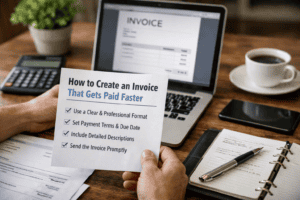Table of Contents
- What’s A Business Credit Score?
- Why Would You Want to Improve Your Business Credit Score?
- Check Your Credit Report
- Pay Your Bills On Time.
- Decrease Your Credit Utilisation Ratio
- Establish Credit Accounts With Suppliers
- Add Trade References To Your Credit Report
- Dispute Any Errors & Enquiries
- “Pay For delete” With Collection Companies

Business credit scores are vital to the health and success of a business. When you own a company and have some kind of open credit, you’re guaranteed to have the equivalent credit score. When you’re trying to get some form of business financing — from a loan to a credit score — you should explore how to boost your business credit score.
What’s A Business Credit Score?
Company credit scores are comparable to personal credit scores. Credit rating companies use a variety of approaches to measure creditworthiness — including the number of trading transactions, outstanding balances, payment history, and more — and that ranges from nil to 100. The nearest you are to 100, the higher your credit score.
Why Would You Want to Improve Your Business Credit Score?
The biggest reason for wanting to boost your business credit score is that it has a direct effect on the funding that your company may receive. Higher credit score means that you can borrow more money. A low credit score might prevent you from borrowing any money at all.
The good news is that if you get a less-than-stellar business credit report, you don’t have to worry about it: there are many ways you can easily boost your business credit score. Some forms are more apparent than others, and that’s why we’ve created a detailed guide to help you boost your business credit score.
Check Your Credit Report
You can acquire a credit report from major credit scoring companies such as Dun & Bradstreet, Equifax, and Experian. These reports aren’t free — even if you’re the owner — but they’re always the first step getting to grips with your credit score.
When you know your ranking, you know what you’re dealing with, and you can get the details you need to improve your ranking, including which accounts negatively impact your rating and any contested things in the rating.
Are you starting a business? Good personal and business credit will be the key to getting financing for your new venture.
As a new company, you need to take action to build up your business credit score. Sign up for credit monitoring to remain at the top of your credit ratings.
Pay Your Bills On Time.
That’s a no-brainer and one of the most effective ways to improve your business credit score, but if you don’t pay your bills on time, your credit score will suffer, and anything else you do to improve your score will be cancelled out by the fact that you’re still a debt risk.
Decrease Your Credit Utilisation Ratio
Credit reporting agencies consider a multitude of things when assessing credit ratings are the ratio of credit used to the amount of credit available. It’s typically a safe idea to keep the ratio below 15%.
Here are a few ways to make this happen:
- Pay off your balances: this is obvious, but it’s going to make sure you’re going to reduce the ratio. If you can’t pay them all off, at least get them as minimal as you can.
- Raise your credit limit: ask your credit card company to increase your cap, and voila, you’ve just reduced the ratio.
- Decrease the spending on credit cards: keep up the good work by reducing the amount of money you spend on credit cards.
- Open up a new line of credit: it may seem counterproductive but why Why would you want more credit if you weren’t going to use it? It’s all about the ratio. Making more credit available and not using it all makes you look good at credit reporting agencies.
- Pay the bills more than once a month: this will hold the ratio down because spending is not going to pile up over the course of the month.
Establish Credit Accounts With Suppliers
If you have a good buyer/seller relationship with certain suppliers over and over, set up a credit account with them to increase the number of positive payments to your file. This can help to improve your business credit score.
Add Trade References To Your Credit Report
Not all vendors and suppliers share payment data with business credit reporting agencies, but you can manually add trade references to your company’s credit file through the credit reporting agency. The more positive payment experience you can add to your file, the better.
Dispute Any Errors & Enquiries
It is possible to collaborate with credit card companies and credit reporting agencies to delete negative reviews from the credit records. It’s essential to ensure that whatever is recorded for your organisation is reliable and up-to-date. Hard inquiries and unpaid accounts have a negative impact on your report, so if you see something in your report that isn’t supposed to be there, call to dispute it. It is a crucial way to boost your corporate credit score.
“Pay For delete” With Collection Companies
When some of your debts have gone to collections, pay attention when it’s time to make good on your debts. Ensure sure the company deletes the derogatory record from your credit report. You have to explicitly ask for this — otherwise, paying off this debt will not help your credit score, because it will still show a history of negative accounts.
You need to fully delete the negative account history to impact your ranking. If they’re not “pay for deletion,” there’s really no reason to pay the collection agency when your goal is to increase the score — it’s going to impact the score, if it’s paid or not.
Your business credit score is a fundamental factor in securing a business loan, among other things. But don’t worry, even if you have less than great scores, there are ways to boost your business credit score and obtain better lending products over time.










